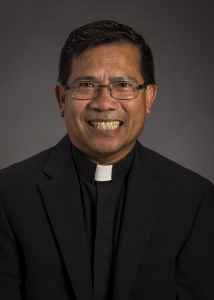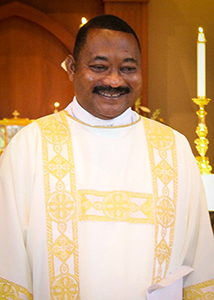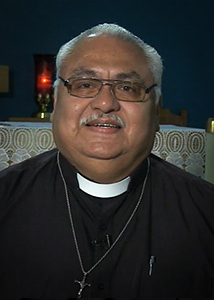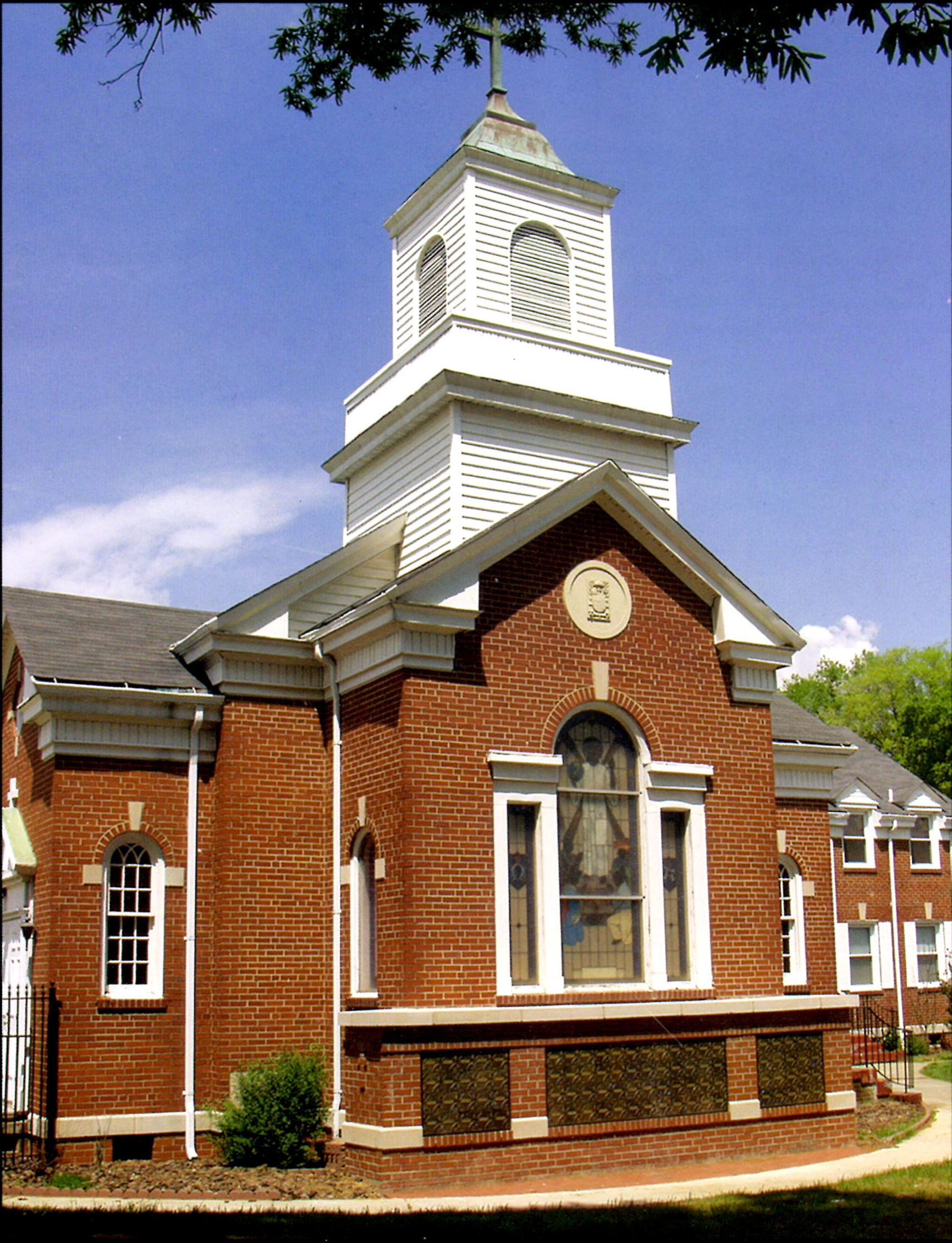OUR CLERGY

Father Joseph Dinh

Emmanuel Ukattah, Deacon

Enedino Aquino, Deacon

Father Joseph Dinh

Emmanuel Ukattah, Deacon

Enedino Aquino, Deacon
Brothers and Sisters in Christ,
The theme for this Sunday is to love, to care for others. In the story of the gospel we can see a big contrast between two types of people. The priest and the Levite in the story were the men of the Mosaic Law. They knew the law very well and they observed the law perfectly. When they saw the injured man on the roadside, they knew that if they touched that man, they would be ritually defiled and they could not perform a service in the temple, so they walked past the injured man. They had the written law but they did not have the law of the Lord written in their hearts. On the other hand, the Samaritan, a pagan to the Jews, did not know the law. He did not have the written law but he had the law of the Lord written in his heart. He knew that what the Lord wanted him to do was to care for the victim, and he did that with love and generosity.
We may be like the priest and the Levite in the gospel. They thought that they were doing great in their life but they missed the point: the heart of the law is to love their neighbors with true love. In the same way we may think that we are doing great in our life. We try to go to church every Sunday, we try to fulfill our Christian obligations, our family duties and we think that we are doing well. But we may miss the point when we ignore the people around us, when we refuse to help our neighbors when they truly need our help, when we skip a chance to come to the needs of our brothers and sisters in our life.
Jesus wants us to ask ourselves a question, not this question who is my neighbor, but rather what should I do in order to become a true neighbor for others? Do we truly love our neighbors, especially those whom we don’t like? Love is not emotion or feeling. Love is an action. To love someone is to do good for that person. If we say we love God we have to serve the Lord. If we love our family, we have to sacrifice ourselves for the sake of our children and the whole family. If we love our community we have to serve our brothers and sisters for the good of our community.
Today we come together to ask the Lord to fill us with his love so that in our daily life we strive to serve others, to come to people in need, to care for the poor and needy. If we do that we are true brothers and sisters of the Lord and the Lord will bless us abundantly.
May God bless us all!
Fr. Joe

Christ the King Church was founded in 1940 to serve the African-American Catholics in High Point, and has since become a multi-ethnic parish celebrating both the diversity and unity of the Catholic faith and tradition. Then-Bishop Eugene F. McGuinness of Raleigh invited the Franciscan Friars of the Atonement of Graymoor, NY to staff the new mission in High Point in 1940. Father Bernardine Watson served as the first pastor, originally celebrating Mass in a funeral home. Through the generosity and perseverance of Father Watson and several benefactors, a clothing shop was acquired for use by the mission. While Mass continued to be celebrated there during much of 1941, the mission community members also turned their attention to building a new church and rectory on Kivett Drive. The new colonial-style church was dedicated by Bishop McGuinness Dec. 14, 1941.
During the 1940s and into the ’50s, the Christ the King parish community continued to grow. A school building and convent were built in 1949, and in 1950 the Franciscan Handmaids arrived from New York City to staff the school. The African-American communities, both Catholic and non-Catholic, of High Point, Thomasville and Greensboro were served by the new Christ the King School, which opened its doors to 50 students in September 1950. The friars continued their pastorate in High Point for the next several decades, cultivating a faith community that became continually more culturally diverse over time. A stained-glass window behind the church’s choir loft depicts that diversity, with Jesus surrounded by four individuals representing the African, Asian, European and Indian bloodlines that make up much of the parish community today.
Lowering enrollment, financial difficulties and the recalling of the sisters to New York forced Christ the King School to close in 1981. The diocesan office of education converted the school for use as a day care center, which began its operation in August 1981. That same year, Franciscan Sisters of the Atonement arrived at Christ the King Church to conduct the religious education program and other ministerial work, including assisting at the day care center. The center, still located on parish grounds, is now privately operated and continues to serve the area.
Upon the friars’ leaving High Point in 1991, Christ the King Church became a diocesan parish in December of that year. Fathers Martin Madison and John Hoover served the parish until December 1994, when Father Philip Kollithanath, was appointed to Christ the King Church. Assisting in the advancing growth of the Christ the King community have been many commissions and ministries focusing on the spiritual , educational, multicultural and evangelical dimensions of the parish. Parishioners gather to engage in Bible study , to learn English as a Second Language, to put their faith into action in the local community and to celebrate their ethnicity. A Hispanic center and bilingual religious education program provide sharing and learning opportunities for English and Spanish speaking parishioners, and the parish African-American Ministry offers outreach programs benefiting the local region. The Women’s Guild, Altar Guild, 55+ Club and Young & Spirited Group are active in parish and community services, and the evangelization commission provides for the spiritual needs of homebound parishioners through its Visitation Ministry. The community of Christ the King Church looks ahead to expansion and renovation projects that will accommodate the needs of a growing parish. One hundred and sixty-one households currently make up the parish registry.